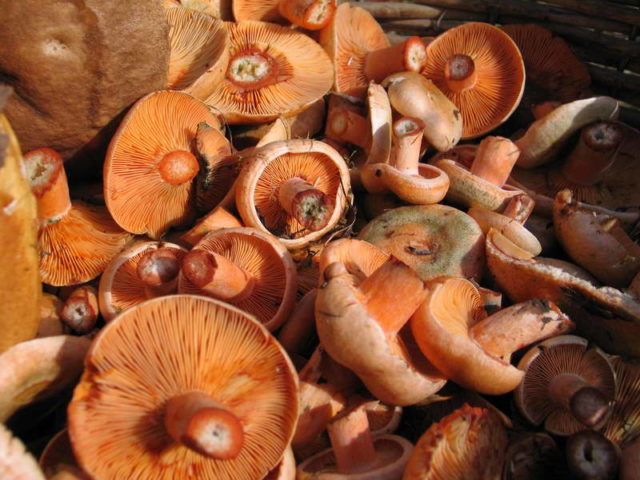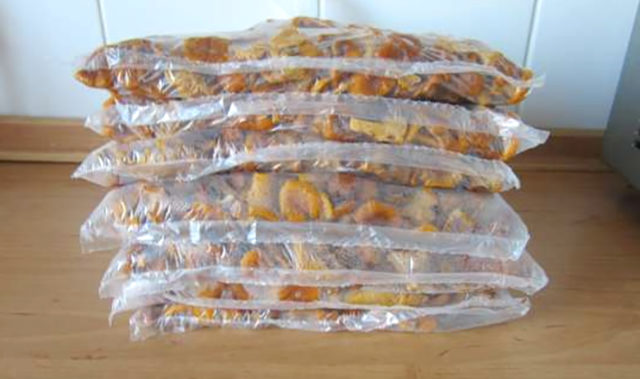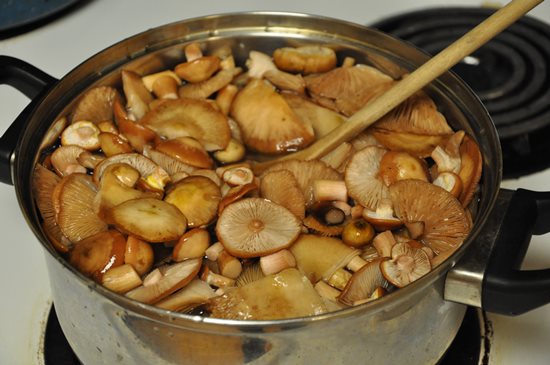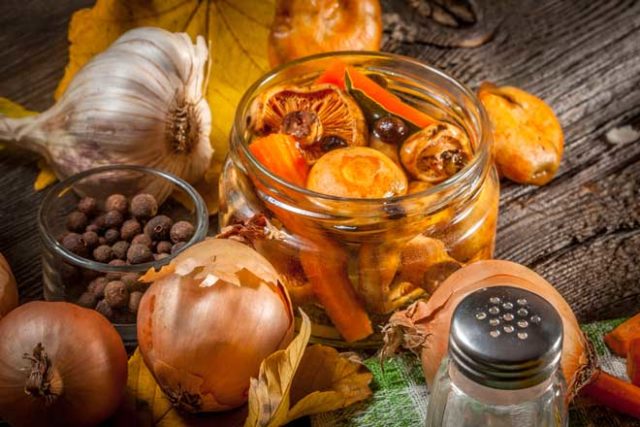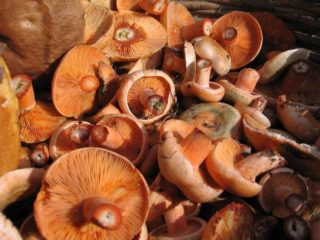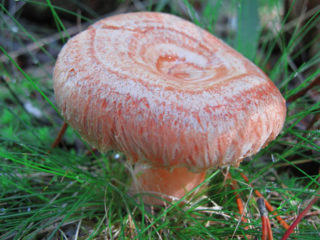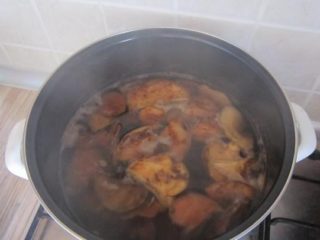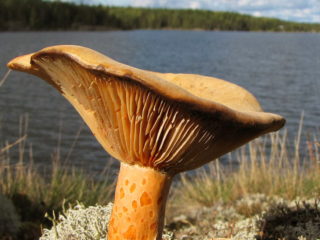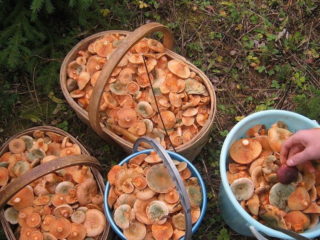Content
Ryzhiki are rightfully considered one of the most delicious mushrooms. They can be prepared in different ways, mixed with other ingredients, and added to dishes. But if saffron milk caps are bitter, this may affect the taste of the finished treat. Therefore, you need to find out why bitterness occurs and how to get rid of it.
Are saffron milk caps bitter?
A bitter taste is characteristic of many varieties of mushrooms. Saffron milk caps are no exception, as they can have an unpleasant aftertaste that affects the taste. This is due to the composition, which includes substances that can give a bitter taste. In most cases, the unpleasant taste is enhanced by heat treatment.
Why are saffron milk mushrooms bitter?
It is believed that the taste is influenced by the conditions where the mushrooms grew. Their caps have a porous structure that absorbs substances contained in the air, water and soil.
Mild bitterness is considered normal. Some chefs regard this flavor as a kind of zest that can highlight the unique taste of saffron milk caps. But more often when preparing, they strive to ensure that they do not taste bitter. First of all, you need to understand why this happens, since the methods for eliminating bitterness depend on the cause.
Why do saffron milk caps taste bitter after freezing?
Usually freshly picked mushrooms are frozen. They may taste bitter on their own - this is considered normal if the unpleasant aftertaste is weak.
Causes of bitterness in frozen food:
- growing in contaminated soil;
- growth in close proximity to coniferous trees;
- improper preparation for freezing.
It should also be taken into account that exposure to low temperatures also affects the structure of tissues and can affect taste. Bitterness can be caused by improper storage temperature or improper proximity to other frozen foods.
Why are salted saffron milk caps bitter?
Pickling is considered one of the best ways to preserve mushrooms for a long period of time. Situations where salted saffron milk caps taste bitter are not uncommon.
Causes of bitterness in pickled mushrooms:
- salting in aluminum, plastic, ceramic containers (freezing food in them is strictly prohibited);
- improper primary processing;
- foreign components getting into the salt;
- violation of cooking technology;
- storage in improper conditions;
- expiration date.
Another possible reason is excess salt in the marinade.Experienced cooks advise adding no more than 40-50 g of salt per 1 kg of mushrooms. Thanks to this, they will be saturated, preserved for a long time and will not deteriorate.
Why do saffron milk caps taste bitter after frying?
Fried mushrooms are always appropriate on everyday and holiday tables. Only a bitter aftertaste can spoil the impression of a dish. If fried saffron milk caps taste bitter, they may have been cooked incorrectly. In addition, the taste indicates violations during storage and processing of mushrooms.
Bitterness can be caused by:
- frying in low-quality oil;
- adding incompatible spices, dressings;
- temperature violation.
Proper preparation eliminates the possibility of bitterness. Therefore, you should strictly follow the recipe and add only those components to the mushrooms that go well with them.
Why are boiled saffron milk caps bitter?
Boiled mushrooms are considered a simple and very tasty snack. As a rule, they do not give a bitter taste after cooking, but there are exceptions.
The reasons are as follows:
- improper cleaning;
- poor quality of cooking water;
- adding spices;
- disruption of the cooking process.
The condition of mushrooms is adversely affected by climatic conditions. Hot, dry weather contributes to the onset of rotting in the structure of the fruiting bodies, which causes an unpleasant aftertaste. Therefore, you should figure out what to do so that the mushrooms do not become bitter after cooking.
How to remove bitterness from saffron milk caps
If the finished mushrooms turn out to be bitter, actions are taken to eliminate the bitterness.However, it should be remembered that not in all cases the taste can be removed from cooked mushrooms.
The easiest way is to remove the bitterness from salted saffron milk caps. Such mushrooms are not subject to heat treatment, so the likelihood of their damage is reduced. They last longer than fresh ones, so the likelihood of rotting and mold formation is minimized.
If the saffron milk caps taste bitter after salting, you need to transfer them to a colander and rinse thoroughly in plenty of water. It is recommended to make sure that all salt and spices are washed off. Then the mushrooms need to be cooked for 5 minutes, cooled and then salted again.
If saffron milk caps taste bitter after frying, it is recommended to simmer them slightly. For this, sour cream or tomato paste is used in small quantities. The dish is simmered covered over low heat for 20-30 minutes. After this, the bitterness should go away.
What to do to prevent saffron milk caps from becoming bitter
The main way to prevent the appearance of bitterness is proper preparation for cooking. It is recommended to sort through all the saffron milk caps, removing those that are beginning to deteriorate or have damage. Then they are washed in water, the remaining soil, grass, and small debris are removed. This procedure requires caution, as they are sensitive to mechanical stress and may be damaged. Next, to prevent the dish from becoming bitter, you should boil the mushrooms.
Cooking steps:
- Place in a saucepan with water.
- Bring to a boil and skim off any foam that forms.
- Add a pinch of salt to the water.
- Cook for 7-10 minutes.
- Remove the pan from the stove, drain and drain.
To properly salt saffron milk caps so they don’t taste bitter, follow the following recipe:
- Peeled, washed mushrooms are dried on a towel.
- Place 100 g of salt, 30 peppercorns, and 4 cloves of garlic at the bottom of the container.
- Place 2 kg of mushrooms on top of the spices and sprinkle salt on top.
- The container is covered with gauze and left at a temperature of up to 20 degrees.
- Salting lasts 2 weeks, after which the finished product is placed in jars.
This is a cold salting method that is very popular. Pickles prepared using the presented method can be stored for about two years. You can use a hot salting recipe, which involves preliminary heat treatment
Conclusion
If saffron milk caps are bitter, it is recommended to use the described methods for eliminating bitterness. An unpleasant aftertaste can greatly affect the taste of the finished dish, and in some cases ruin it. To prevent mushrooms from becoming bitter, they must be properly processed before the main cooking process. It is important to follow the recipe and add only compatible components to saffron milk caps.
